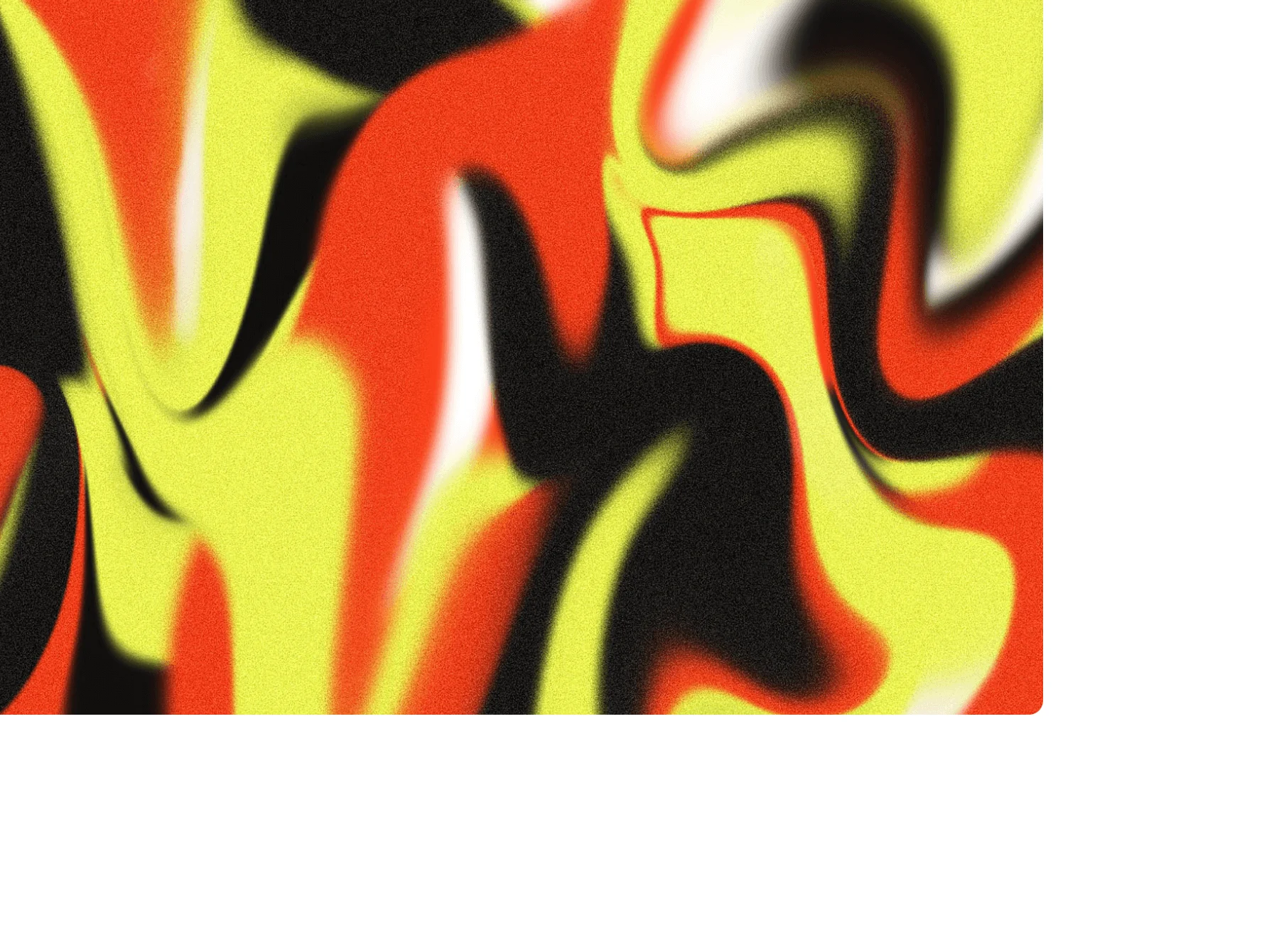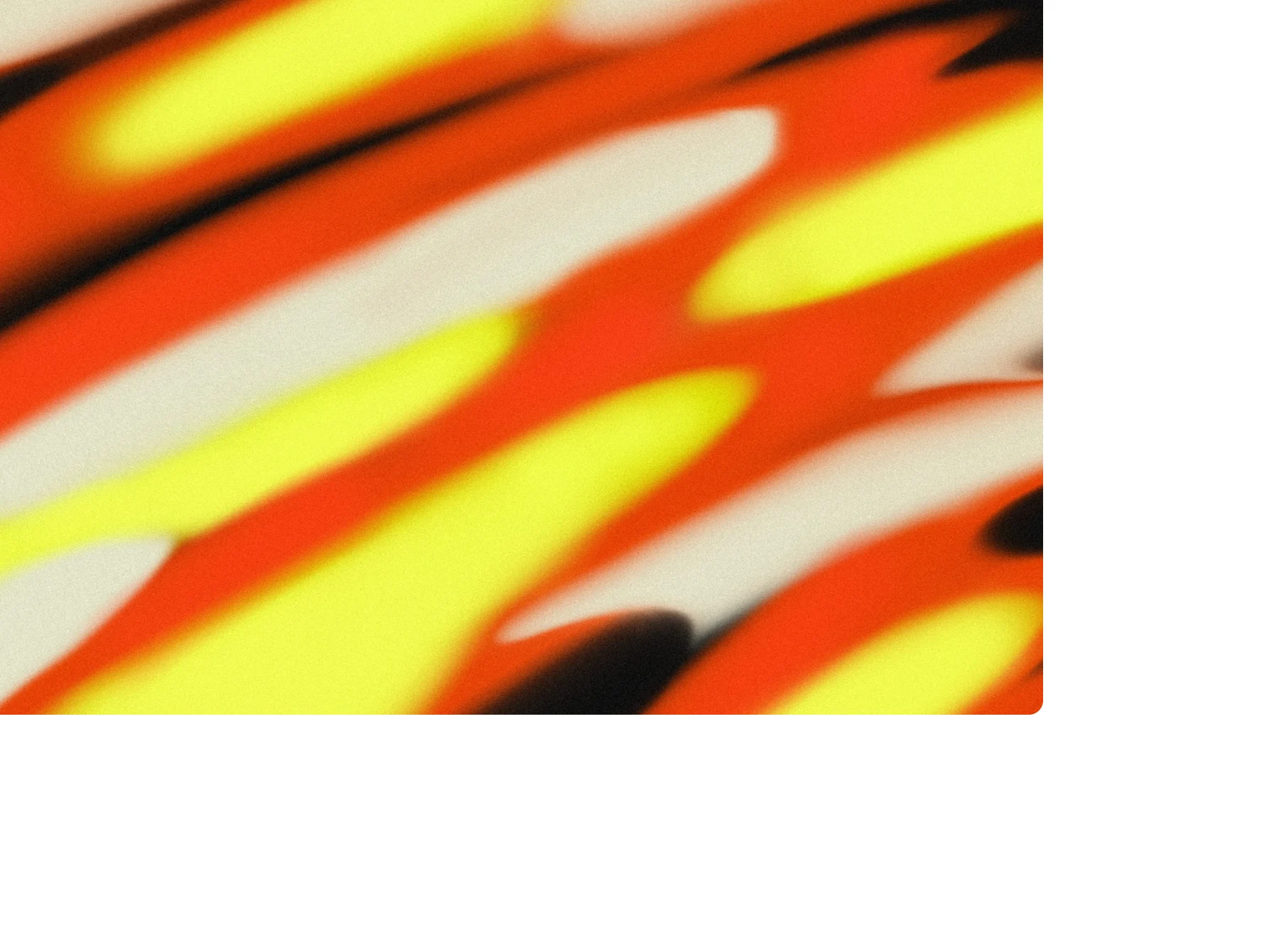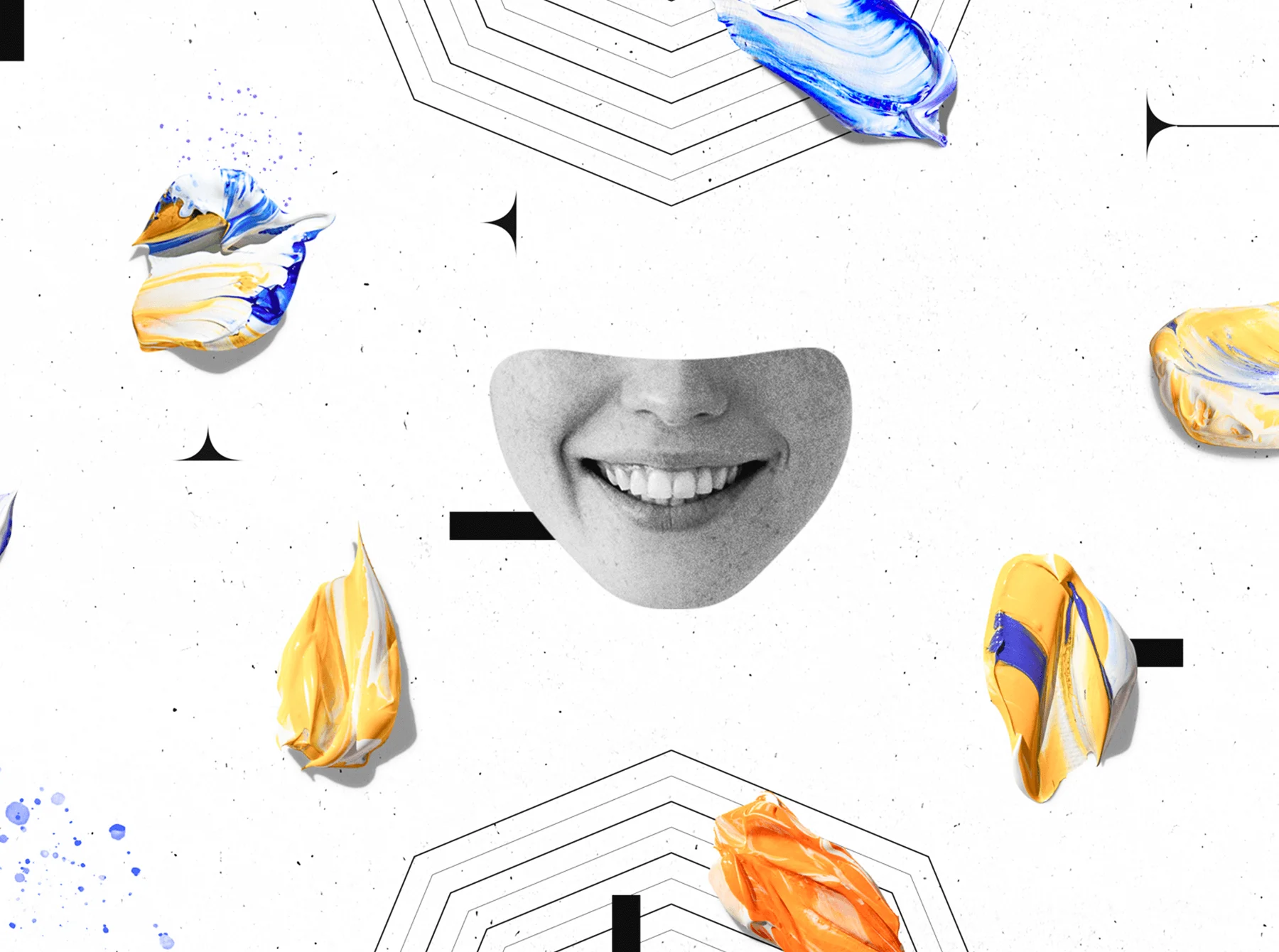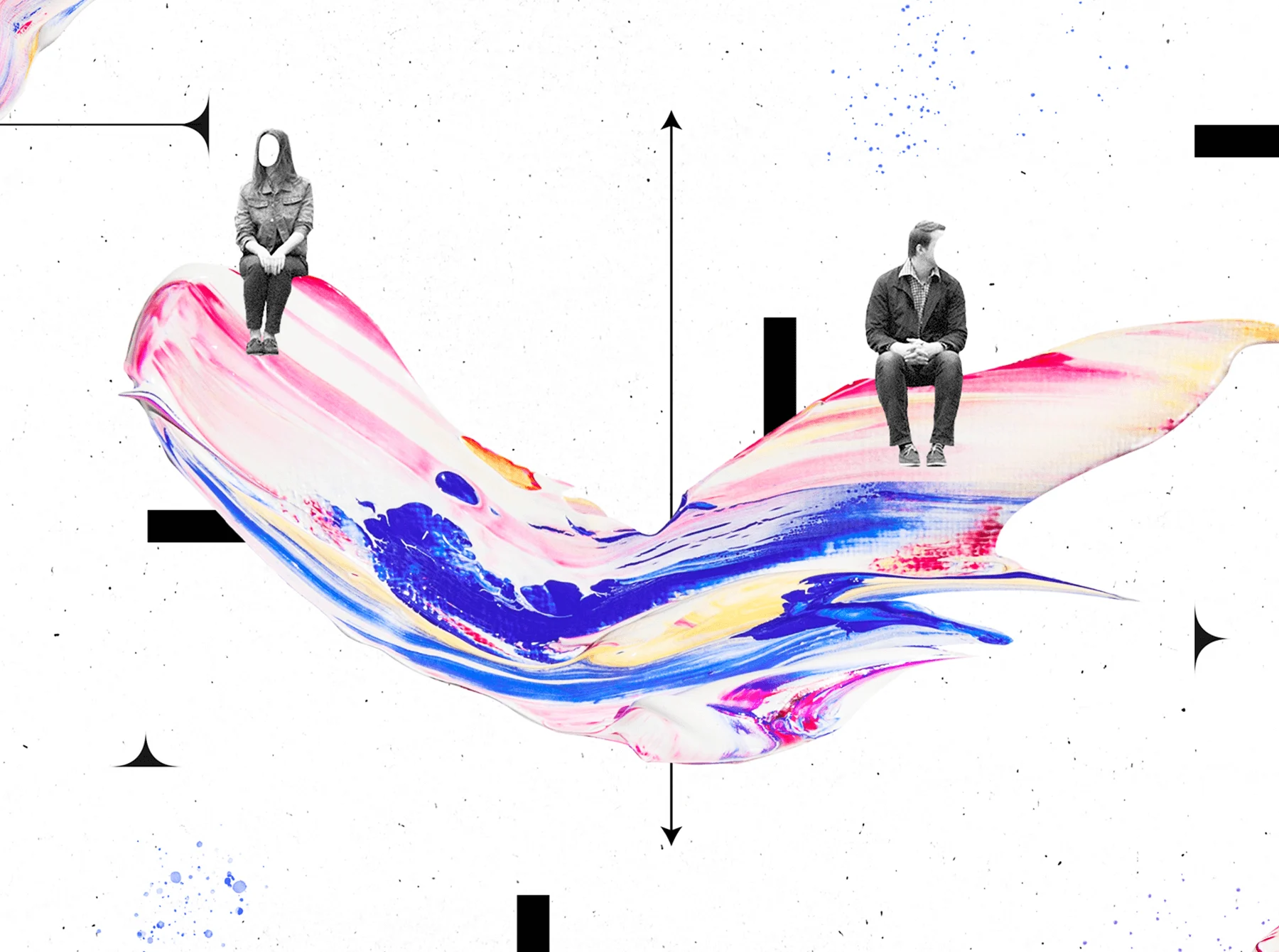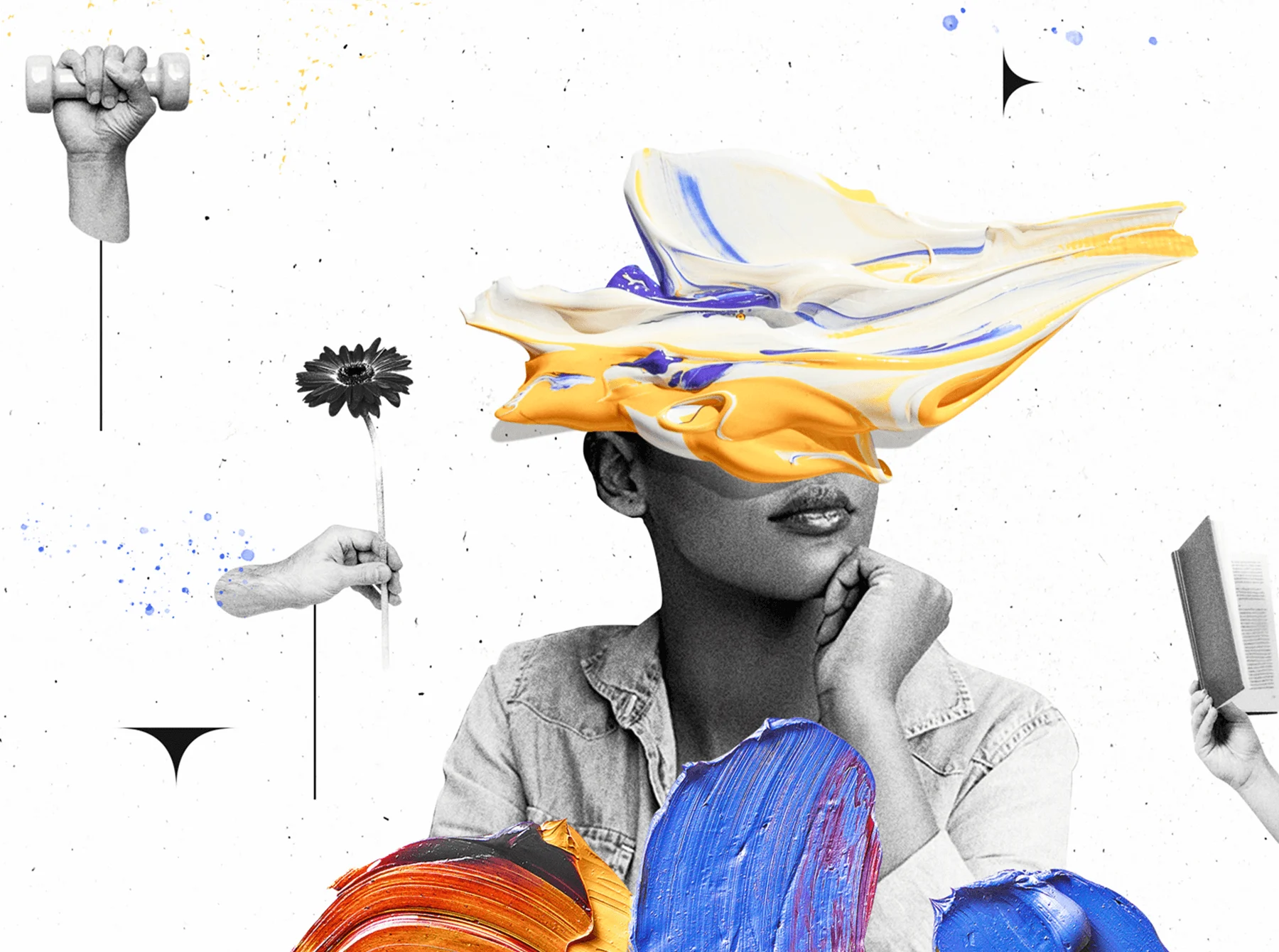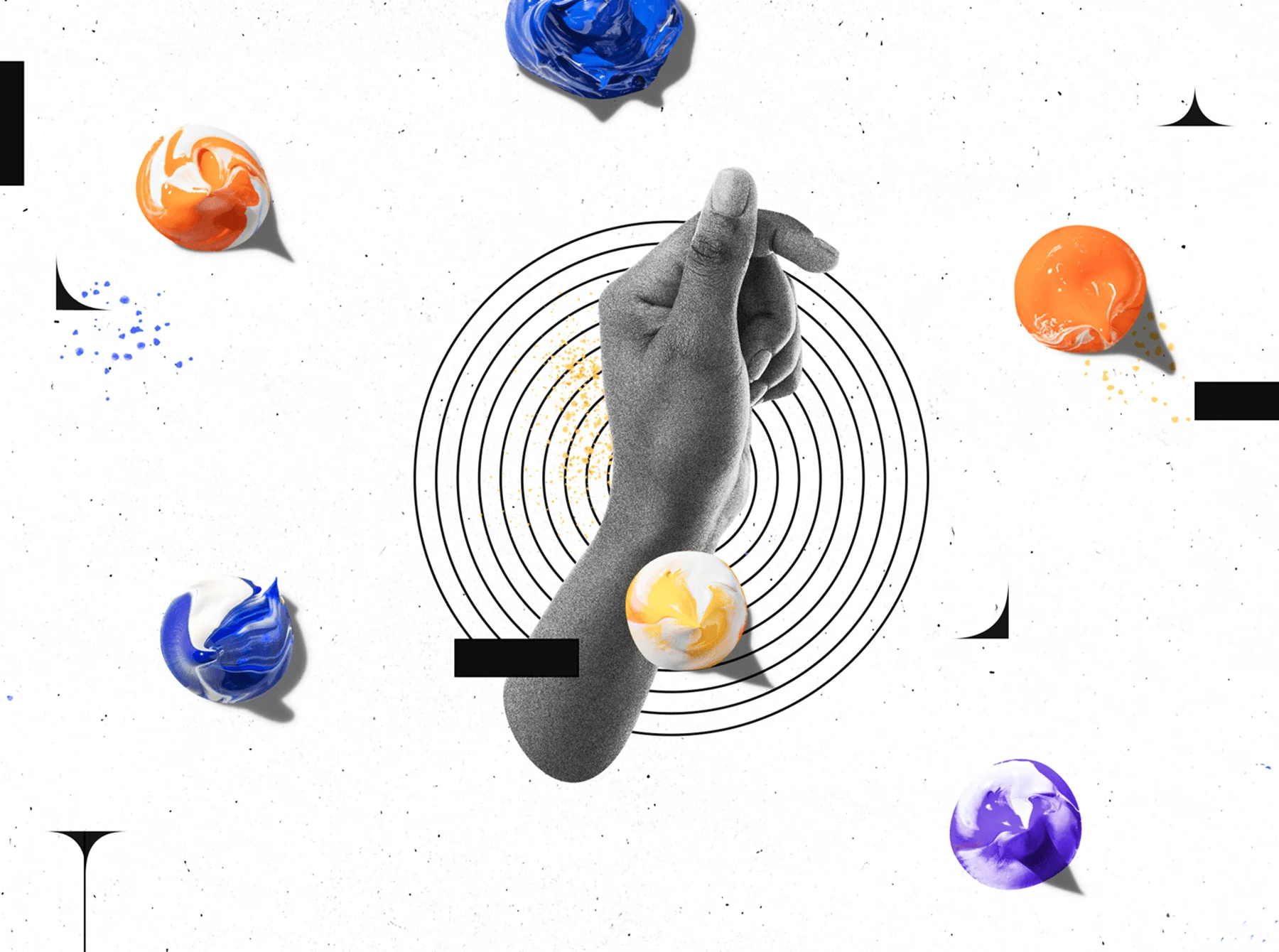

The WeTransfer Ideas Report 2020 revealed that 45.3% of people report having more creative ideas due to changes in their working environment. With much of his work tied to the constantly-hanging-on-a-cliff-edge world of politics, Cuban American artist Edel Rodriguez has had to learn to adapt. Here he discusses the tricks he’s learned to cope, how his background as an immigrant prepared him for everything, and why it’s so important to embrace your mistakes.
Data visualisation by Gabrielle Merite.

Problems are good because they force you to be reactive. I like to compare it to being an athlete. When I was younger I used to play a lot of sports like football and baseball. In baseball, you have to react really fast to something that's coming at you, and you build a response mechanism. I think of creativity and change as sports for your brain, which comes in handy when you have to make work about a situation that changes constantly, like the US elections. I worked with Der Spiegel for three days on the “Biden wins, Trump loses” cover before election day. On the day of the election results, though, it looked like I had to make something entirely different. In those moments, my brain has to react to the new situation and find a solution.
I deal with change by thinking ahead a little bit. I ask myself “what if” questions and I have a tendency to never get excited about anything until it happens. My wife thinks it's a depressing way to live my life, but I know that it prepares me for any problems I might face. Change is something I always expect, so I never get too invested in one outcome. I’m prepared for anything.
I studied painting and fine arts at the Pratt Institute in New York. The professors didn’t just tell you what to do. Instead they asked questions, pushed you to look at the work of other artists and visit exhibitions. It helped to open my mind to so many different possibilities. I realized there's no end to what you can do.
I think of creativity and change as sports for your brain.
Ever since then, I’ve enjoyed stimulating my brain with new things. As an artist I like to have a conversation with whatever I’m making. It’s similar to having coffee with a friend, getting to a point where you've exhausted that conversation and then going to meet someone else. That's what I do with art. I have a conversation with a painting until I feel like I'm done, and then I switch to something else.
So, my advice on dealing with change is to learn to be adaptable. Don’t linger on one project for too long, and then you're never going to get stuck. Even when I was 18, with no professional obligations, I always felt busy and excited. It’s as if I’ve always been in a race against time to make what I want to make.
I think I’m partly like this because I am an immigrant. When you come to a new country, you see everything as an opportunity. There are no downsides or limits. Growing up, my father used to tell me, "You have the opportunity to do anything you want here. This is a free country. You can speak out." There was this weight of responsibility to do something with my life. I left behind many friends in Cuba that didn't have that opportunity. I think generally immigrants are in more of a hurry, because they feel like they've lost valuable time living in a place with less opportunities, so when they do get those opportunities, they're in a rush to catch-up.
I realized there’s no end to what you can do.
Pretty much everything about Cuba is different to the US. The most attractive thing about the country is that you experience things you’re not used to. The way you travel in the country, the money, how people interact…everything is different. It forces you to adapt to a whole new environment. It forces you to keep your senses sharp.
Another thing that’s different about Cuba is the fact that people pretty much live outside. There's no air conditioning, so the windows of your house are always open. You get to listen to what's happening outside all the time. I noticed Western environments are all very controlled and private. There's rarely privacy in Cuba. It's a little bit chaotic, but at the same time you become much more aware of your senses and natural occurrences like rain, thunder and birds. All of those elements inspire you and can make their way into your work. They make you very creative.
From the age of five, when we were still living in Cuba, I was making my own toys. We didn't have toys at the store, so I became very adept at making things with my hands. My grandfather was a carpenter so I worked with him in the carpentry shop. Through this I learned from a very young age to make mistakes. Every time I made something it was a disaster, but nobody judged me for it. It was part of the learning experience. Now, in everything I do, mistakes are part of the process and I love them.
As an artist I like to have a conversation with whatever I’m making.
These mistakes find their way into my personal work, especially my painting. I recommend everyone to have two tracks of work. On the one hand, your assignment work, and on the other your personal projects that you're doing for no reason and where you can make mistakes. You're going to get assigned for what you do and have been doing for the last five to 10 years. The danger is you can get stuck repeating the same thing for clients.
To avoid this, see your personal work as a laboratory. You reach a dead end creatively if you don’t innovate in your personal work. To me, it's a lot more fun, because it's unpredictable. There's room for mistakes and it can sit around for six months without being finished.
If you can stimulate yourself with a variety of things, you’ll rarely feel like you're bored or lack direction, and I have felt that way sometimes with my paintings. It can be scary because painting asks you a question. Looking at the blank canvas, it asks you, why are you doing this? I will continue to paint my entire life because I'm fascinated with the idea of making something visible that's in my mind. That's the most attractive thing about creativity; the idea that you're the one to bring something new that never existed in the world.
See the full Ideas Report and find out how 2020 impacted the work of 35,000 creatives at WeTransfer Ideas Report 2020.


